A beaming Kaarle McCulloch after winning a 13th national gold medal in Brisbane in 2018. Photo: JOHN VEAGE
Four-time cycling world champion Kaarle McCulloch will soon be speeding on Tokyo’s slick tracks at the Olympics, but the road to get there hasn’t been without its bumps.
Although she’ll be lugging her bike on to a Japan-bound flight next month, McCulloch initially resented the idea of racing on wheels. After her stepfather Ken Bates took a 12-year-old McCulloch to the Sydney Olympics in 2000, she was adamant she was going to be “just like Cathy Freeman”.
“I was pretty stubborn and thought I’d be a middle-distance runner,” she told the “Where Do We Begin” podcast.
The modest member of a three-time national title-winning school team was “good at it”, but her short, stocky stature just wasn’t one built for Olympic running glory. However, her life would soon be flipped upside-down.
Bates’ side of the family owned a bike shop and had for years been urging McCulloch to try cycling.
“I just thought I am not trying cycling; I am going to be a runner,” McCulloch recounted of her obstinate adolescent years. In 2005, though, she gave in to the familial pressure.
As Bates ushered McCulloch into this brave new world and guided her to St George Cycling Club, his last-minute tips didn’t do much to settle nerves. “A track bicycle is fixed-gear; it has no brakes, and you can’t stop pedalling it,” Bates told his increasingly frightened stepdaughter.
Two thoughts swirled around McCulloch’s head while she built herself up to mount the apparent two-wheeled death machine.
“First of all, as a 17-year-old, I was like “this is crazy – who would even do that?” she said. “Second of all, the lycra skinsuit did not appeal to me at all; I couldn’t believe that you don’t wear underwear underneath those. It was outrageous! I didn’t want to have anything to do with that.”
She begrudgingly rode her first few laps in a training session “forced” upon her, but, as she went on, a whole new world showed itself to her inside the velodrome. “I actually beat everybody there,” McCulloch said.
Jim Beer, a local legend and coach of that training session, knew a gem had been unearthed that day at Hurstville Oval, and took McCulloch aside to provide some unforgettable feedback.
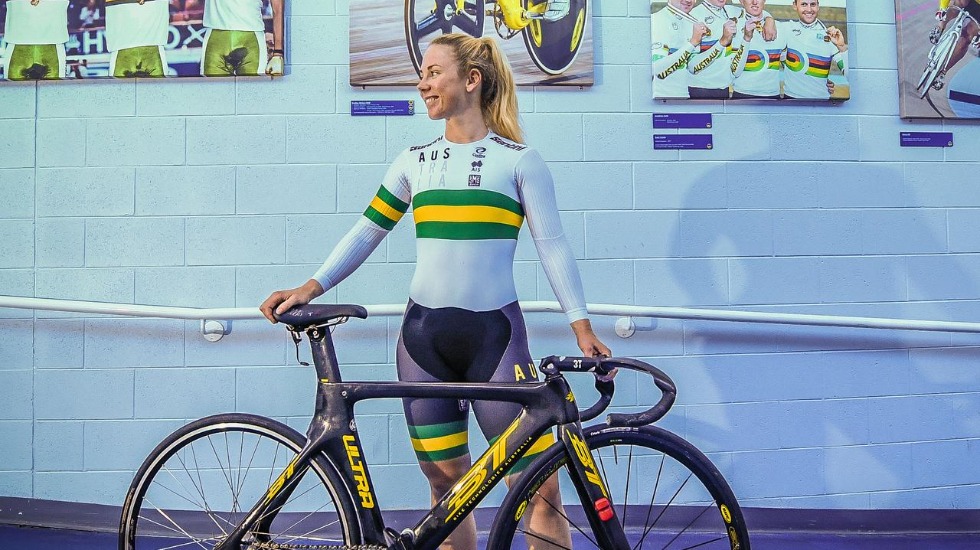
Olympic cyclist Kaarle McCulloch begrudgingly rode her first few laps in a training session “forced” upon her. Photo: AAP
“He said: ‘If you had have done that same time on a track 100 metres longer, you would be the Olympic champion like Anna Meares’.” Those words changed McCulloch’s life “forever”.
“From that moment on, I was a cyclist. Within two weeks, I’d told my running coach: “I’m done; I’m ready for something different in my life.”
Eight months later, McCulloch had made the Australian team and adorned her wall with a bronze medal from the 2006 junior World Championships.
Fast-forward another six years, and McCulloch was racing on the world’s biggest stage with the second subject of Beer’s comparison.
The team sprint at London’s 2012 Olympics was one that Anna Meares and McCulloch, world champions of the previous three years, were expecting to win. But much McCulloch’s chagrin, the pair finished behind China and Germany to claim third place.
“There are photos of me as I cross the finish line and I look absolutely devastated,” McCulloch admitted. “Pretty soon after, I walked into the studio of the Australian broadcaster and was given a standing ovation. I was like: “Why are you applauding me? I got third. I’m not the gold medallist’!”
However, the hordes who greeted her upon returning home elevated her appreciation of the “pretty damn incredible” achievement.
“It’s taken a long time for me to realise most people go to the Olympics and lose,” she added, glowing with pride. “Just getting there’s important. The whole Olympic spirit is about participation. It’s not about winning. It’s about what you have to do to win.
If it’s a gold medal, fantastic; if it’s bronze, fantastic; if it’s sixth, that might’ve been your potential. We didn’t lose the gold. We won the bronze.”
After those Olympics, however, things only got tougher. A quarter-life crisis had McCulloch’s world “imploding” and her seeking professional help as well as taking anti-depressants for a brief period.
The breakdown of an unhealthy relationship with her first boyfriend was merely the tip of the iceberg. Following a post-London injury and a politically controversial change of coach, McCulloch suddenly found herself on the team’s outer.
PLEASE HELP US CONTINUE TO THRIVE BY BECOMING AN OFFICIAL FOOTYOLOGY PATRON. JUST CLICK THIS LINK.
“I got a phone call one Monday morning while I was in the gym saying I would no longer be on scholarship,” McCulloch recalled.
“That was pretty gut-wrenching, because I woke up the next day and I realised I was 26 and didn’t have any other qualifications – just a bronze medal that wasn’t going to count in the real world.”
The “Harry Potter” fan was living in her very own “cupboard under the stairs”, and all hope looked lost. However, her bounce back would have made Chumbawumba proud.
Meetings with a sports psychologist helped her improve on her “unhealthy single-minded” nature and she decided to resume her teaching degree. The other “pact” she made with herself was to “give everything”.
“I decided not to work. I used all the savings I’d made in my first four or five successful years of cycling and put them all into developing a team around me to get me back into the team and having a red-hot crack at Rio.”
But her time in Brazil wasn’t one that would have Peter Allen singing with joy.
She’d managed to graft her way back into team contention and, in the lead-up to her second Olympic experience, was, along with Meares and Stephanie Morton, part of a rotation to find the ideal sprinting pair.
A “significant” and “emotional” bronze medal with Meares at the 2015 World Championships had McCulloch feeling like all of the “sacrifice” was “worth it”, but the announcement of the Olympic team hit her hard.
Despite achieving a personal best in the final lead-up training session, Meares and Morton were the ones who’d be donning the green and gold when the velodrome gates opened on 12 August.
Having just solemnly attended a team meeting on race-day morning in the food hall, a lonely-looking and “mad” McCulloch was sat next to by Meares, but the consolation attempt didn’t stop McCulloch from bending her fork in disappointed anger.
But just a few months ago, McCulloch and Meares had an impromptu “cathartic” and “honest” heart-to-heart.
“There were a lot of tears shed,” she said. “It was unexpected from my end; I thought it was just a catch-up for coffee, but it was a catch-up for us to put everything out there and to say to each other ‘I appreciate you’.”
McCulloch’s growing resilience, combined with an astonishing run of form where she won another World Championship, had her fully believing she and Morton were destined for gold in Tokyo 2020. But yet again, the gym was the setting for a career-changing incident.
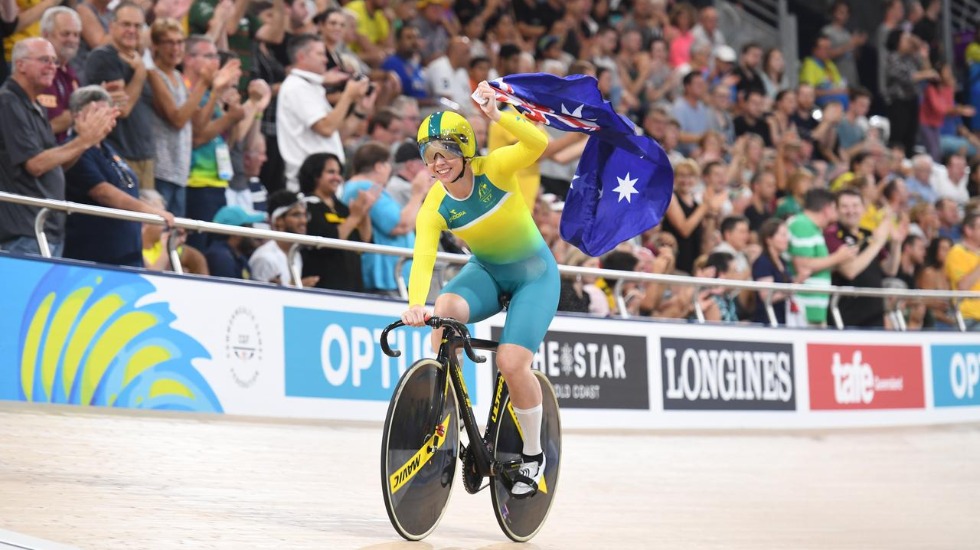
McCulloch celebrates winning gold at the 2018 Commonwealth Games. Photo: DAN PELED
Exactly a week after claiming a record 21st gold medal at the Oceania Championships, McCulloch irritated a disc in her back.
“It was constant daily pain for six or seven months,” she said. “I had to check in with my body every 20 minutes to see if I was holding tension anywhere.”
An “intense” period of receiving six cortisone injections didn’t fully stop the pain subsiding, and, as recently as the day before this interview, doubts crept into her mind. “I was sitting in the pits thinking: can I still do this? Am I still good enough?” she said.
What didn’t help was teammate Morton retiring in November 2020 due to the Games’ postponement. The announcement rocked her.
She went from “at least a guaranteed medal” and a place in three events to having to pull out of the team sprint and compete alone in the sprint and “lucky dip” keirin event. Yet McCulloch hasn’t lost her supreme sense of self-belief and ambition.
“The goal is always gold,” she said. “I’ve got 15 years of experience racing; I feel super confident in my ability to execute my tactical races. I know a lot of people fear having to race me because I am very skilful and tactical on my bike.
“All I need is my form to increase and those legs to go a little bit faster and I’ll be competitive and hopefully one of those girls standing on top of the podium.”
In early August, McCulloch will be racing for a gold medal to add to her Olympic bronze – a prize she dedicated to her first coach: the late Jim Beer.
An incredible athlete she may be, but McCulloch’s friendliness, humility, and kindness are her defining traits. In typically generous fashion, after spending more than an hour recounting the extraordinary life she’s lived, she leaves with the words that have kept her so grounded.
“Find the best qualities in every person and find a way to use them for your own good,” she says. It’s a positivity which rivals her accumulation of medals. And within two months, she may just also have the one that’s so far eluded her hanging around her neck.
Kaarle McCulloch’s interview, the fourth instalment of an Olympic-themed series, can be heard in full via “Where Do We Begin”, available on all major podcast platforms.

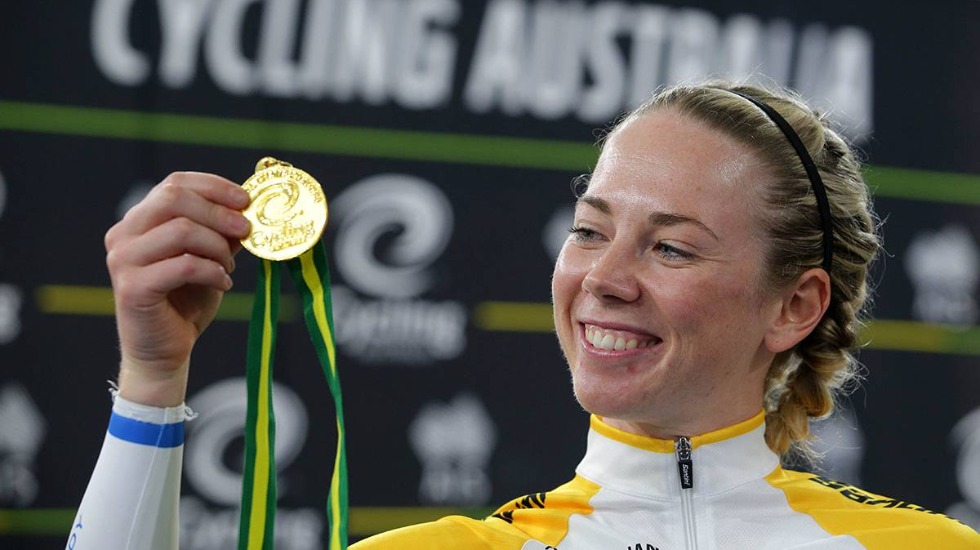
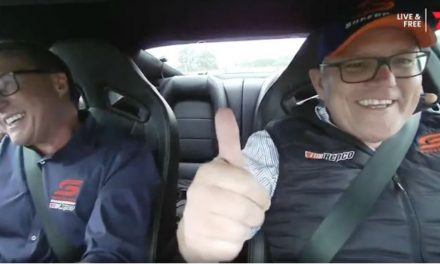
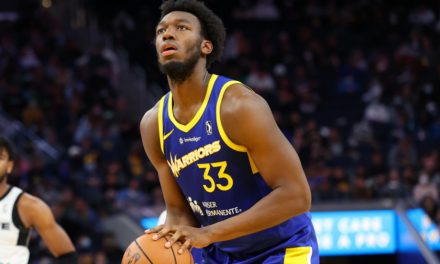
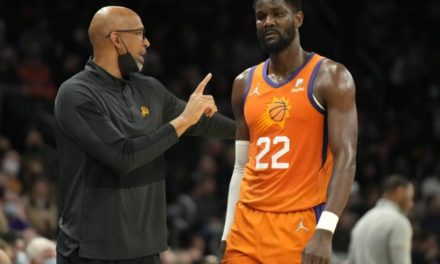
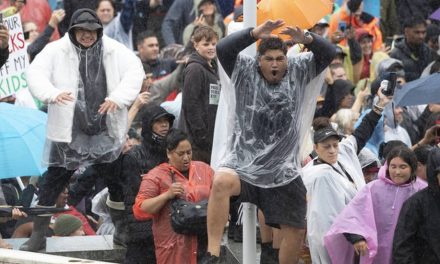






I have watched Kaarle grow both physically and mentally in the past years. I have felt her disappoinment, and her wonderful attitude and belief in herself. I will be at home whenever the Australian Track cylists ride and I will be screaming for Kaarle – So proud she has fought so hard to be in Toyko for the 2020 Olympics. Kaarle is so loved by younger cyclists and always ready to give advice and encouragement. Love you Kaarle. The colour of a medal and a podium is no longer your greatest achievment, Because you have won the fight and succeeded. Good Luck hampion.
No one deserves the support of the nation more than Kaarle. One of the most amazing people I’ve ever had the pleasure of speaking to.